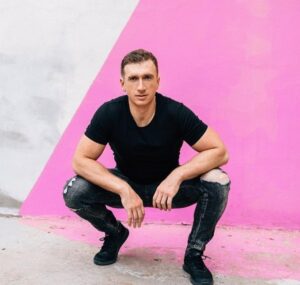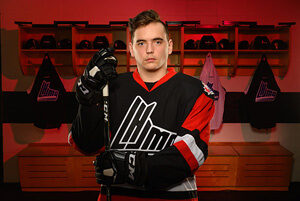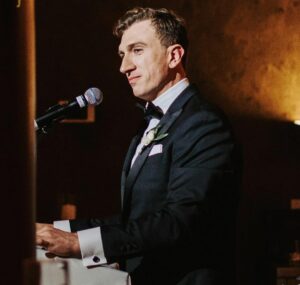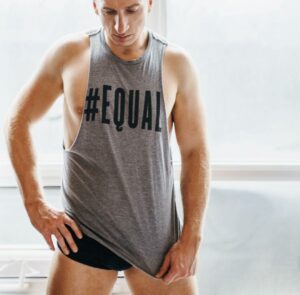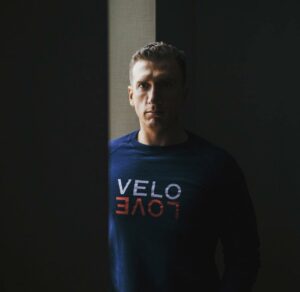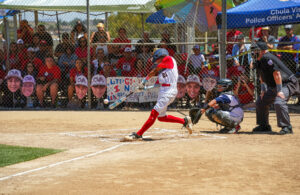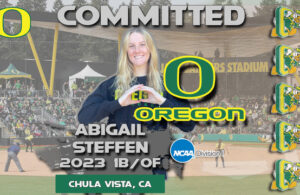Ex-Goalie, LGBTQ+ Activist Brock McGillis and the Fight for Equality in Sports
- Updated: December 3, 2020
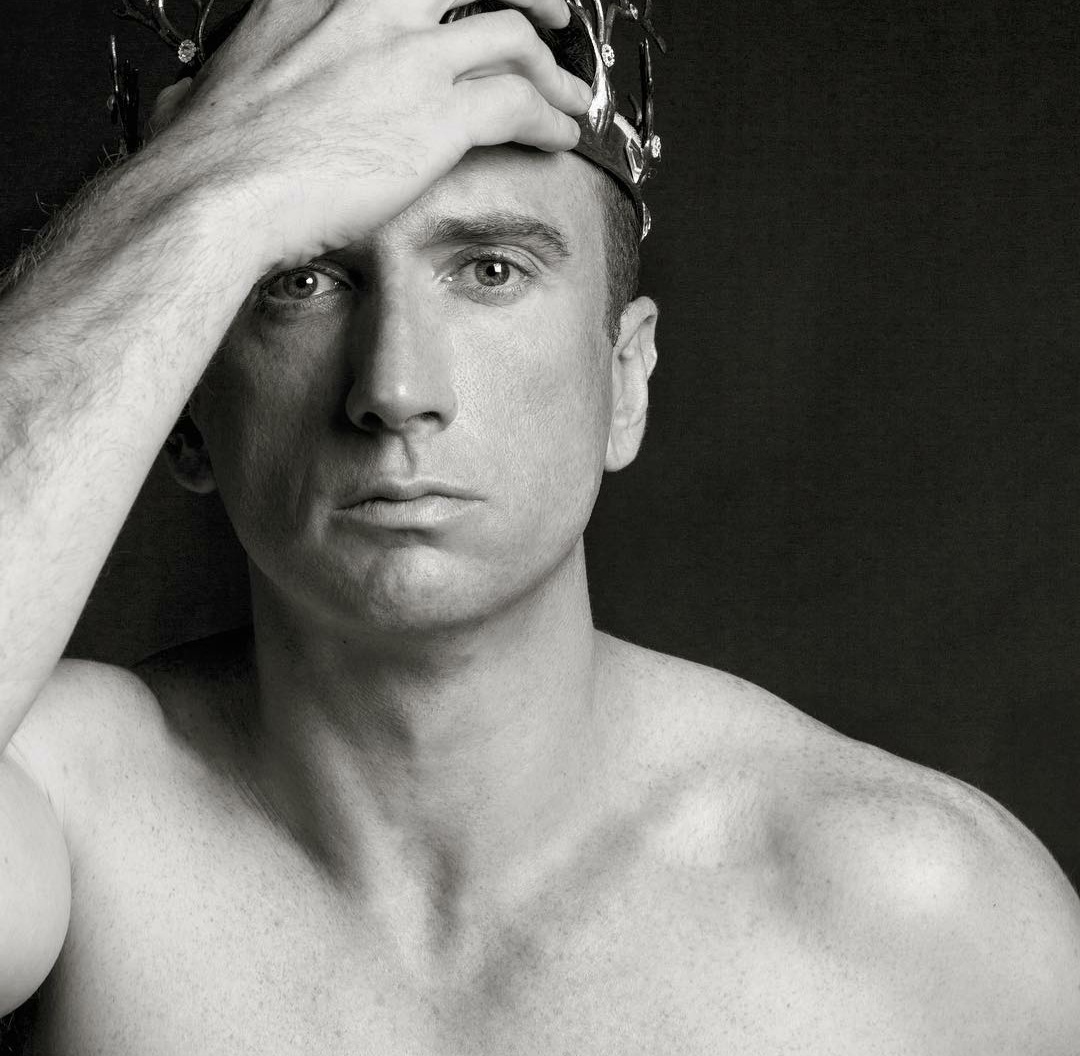
(Photo courtesy of Brock McGillis’s Instagram; @brockmcgillis33)
In recent years, professional sports have become increasingly progressive. From more women and Black individuals in player development and management roles in hockey, the sport’s inclusion has become more prevalent.
The National Hockey League continues to work hard to make their sport one of the most inclusive and welcoming. Part of the League’s initiative has been working with the LGBTQ+ community in hopes of making their “Hockey is for Everyone” mantra fully complete.
I recently had the honour of speaking with Brock McGillis, who is known for being the first men’s professional hockey player to come out as gay.
Since then, McGillis has become an influential advocate for the LGBTQ+ community, sharing his story on a multitude of platforms including CTV and CBC’s flagship news program, The National.
Since Coming Out
Brock McGillis came out as gay in November 2016. While that may still be recent, McGillis admitted that it was a much different time when he did reveal that he was gay.
“When I first came out, there was nobody out,” McGillis said. “There were no players. I was the first openly gay male professional hockey player. So, that has changed in the sense that since then, so many stories have been written, so much stability has happened. We’ve seen a couple of players in Europe, we’ve seen Yanic [Duplessis] and I know of others who are coming out. So, that in itself is an evolution that I’m incredibly proud of, to be a part of. Shifting that, I think the conversation is changing where people are starting to recognize performative allyship.”
Both in terms of attitude and overall acceptance, the landscape has definitely changed for the LGBTQ+ community in hockey. While he is happy to see this, McGillis couldn’t help but stress that gestures such as Pride Nights and players using rainbow-coloured stick tape, while appreciated, aren’t enough to resonate the message of inclusion.
“Before I came out, it was, like, ‘Oh, look, it’s great, we do Pride Night,’ and players using tape in warm-ups to celebrate pride,” the former Soo Greyhound began. “Those are lovely things and they’re important and need to happen but there needs to be the celebrations after the work is actually done. I think we’re starting to see more people beyond myself and a couple of others in saying this. I think it’s also now that we’re starting to see so many other groups come forward, whether it’s in terms of race or gender or anything else. People are becoming so vocal and they’re starting to recognize that the performative action that has existed for LGBTQ+ or for the Black community or for anyone else isn’t enough. We’re sort of aligned in that sense and our voices are stronger together.”
While it may have its share of negative aspects such as politically charged divisiveness, social media has become an influential tool in helping to unite voices dying to be heard or even lost years earlier. The former netminder knows this as he is very active on social media, including Twitter.
“Social media has played a huge role in that,” McGillis emphasized. “Bringing together multiple voices from different parts of the world who have different goals but recognize the commonality and the intersections between our goals in that united, we will conquer more and shift the sport so that it’s a safe space for everyone and people can take part and it’s not just the illusion that it is.”
More Work Needed
While leagues on every level are doing their part to gain recognition for the inclusion of LGBTQ+ community, McGillis was quick to admit that more needs to be done.
“I think that all leagues need to do a better job in engaging in these issues, having an understanding and having people in place to support,” he noted. “The reality is that neurostudies are showing that closer to 20-25 percent of the population identifies as LGBTQ+. That means that there are people already in the leagues that are gay, bisexual, non-binary or trans, and they’re not out. We need to create a better environment for them and support them. They need to have education for themselves, the players and everyone else so that when this happens, people know what to do and how to engage and support somebody like Yanic.”
If You’re Going Through Hell, Keep Going
Brock McGillis is proud of his role in the LGBTQ+ community. There are no two ways about it. However, like any positive effort, McGillis’s journey comes with its share of frustrations. He is quick to admit this but also knows that the end reward is simply too enriching to give up on.
“I think I’m always frustrated a little bit,” noted McGillis. “Until we get to a point where hockey is a place where people can go and it can be empowering and an escape from oppression and struggle, I’m probably going to continue to be frustrated.”
One player in particular who came out as gay this year was the aforementioned Yanic Duplessis.
A QMJHL prospect, Duplessis was courageous enough to come out in September. Yet, while he was met with an outpouring of support, the 17-year-old nonetheless had to deal with hate and death threats. Fortunately for Duplessis, he found a mentor and a confidante in McGillis.
“I’ve been in contact with Yanic for months,” the former goaltender said. “He had found my story and then from a few different people he spoke to, some journalists and whatnot, put us in touch.”
Without hesitation, the LGBTQ+ advocate provided Duplessis with some resonant advice.
“My advice to him is to know why you’re playing and play for the love of the sport,” Duplessis explained. “Have a tight-knit, strong team around you to deal with any potential negativity that may come your way and be open about what’s happening. First and foremost, you have to focus on your health and your well-being, and that’s going to come from engaging and ensuring that you’re taking care of you.”
After all, there are few people more empathetic to Duplessis’s situation than McGillis.
“In conversations with some people within the sport in powerful positions, I bang my head against the wall and I want to quit doing this,” McGillis admitted. “It’s thankless at times. I get a lot of hate, I receive death threats and it can be overwhelming dealing with peoples’ oppression and struggling on a daily basis. But, stories like Yanic’s and engaging with people whose values, thoughts, goals and ambitions for the sport, seeing a few players take a knee in the NHL in their support of Black Lives gives me hope and fuels me and it makes me feel like this is all worthwhile, that we can make this space inclusive for everyone.”
Through it all, McGillis constantly reminds himself to keep his eye on the prize.
“It’s difficult, it’s hard to do,” the 37-year-old continued. “But knowing that sharing my story helped a teenage boy come out and live his authentic self, it’s so fulfilling and rewarding.”
Paving the Way for a Safer Space
Not all of us know what it’s like to come out. For Brock McGillis and many others, some of us can only imagine how difficult said decision is. Furthermore, the decision of coming out is nothing short of admirable, knowing the risks of being unaccepted, ostracized or, worse, becoming non-existent to those who choose ignorance over empathy. Still, the courage to make that leap, to be truly comfortable with oneself, is downright inspiring. But, not everyone is ready to make that leap.
Even those who look up to Brock McGillis as an inspiration may decide not to come out, at least not right away. For the native of Sudbury, Ont., though, that is okay.
“I think that if you’re not in a place to come out, then don’t come out yet. I’m a big believer in that,” McGillis stressed. “You have to do what you feel is right along your own timeline.
“First and foremost, you need to accept yourself because the reality is that only you can accept you. For someone else to accept you means they’re above you, and we’re all equal. So, when you learn to accept who you are as a queer person, you’re going to be more okay with it. Then from there, when you learn to love who you are and love yourself — I love that I’m a gay man; I’m proud of that and I wear that badge with honour — and when you do that, you’re going to be able to come out and endure, maybe, some negativity or hate because you have that deep and internal love for yourself. Then, the other thing I suggest to people is that if you’re struggling, talk to me. I’m accessible. I’m there for anyone who needs talking to. There are other people like me out there and we will ensure that you’re feeling good and give you the resources and support to make sure that you feel good and to learn to accept and love yourself. And you don’t have to be in hockey. That’s a personal choice.”
Not everyone has to know what it’s like to know what Brock McGillis and the rest of the LGBTQ+ community go through. They may never know what it’s like. Nevertheless, this cannot prevent us from being empathetic human beings, to just take a moment and imagine how difficult is was for Brock McGillis or for Yanic Duplessis or for anyone to come out as gay. The sooner we can do that, the better it will be not only for the LGBTQ+ community but for humanity overall. Until then, McGillis ceases at nothing to let his voice be heard and to make a positive difference in the lives of others.
Among other accomplishments, Brock McGillis was hired by the Toronto Maple Leafs earlier this year to run a virtual workshop about homophobia for the team’s personnel. McGillis was also featured in the 2019 documentary Standing on the Line. You can also follow him on Twitter at @brock_mcgillis and visit his website at www.brockmcgillis.com.
In a perfect world, we can look forward to a day when there is no more hate and no more ignorance for the LGBTQ+ community — to mention just one community — but that may not be the most realistic approach. Instead, we can all help diminish said hate and ignorance, little by little, so that players like Yanic Duplessis can feel safer as an openly gay man playing the sport he loves. Thanks in part to Brock McGillis’s guidance, Duplessis is definitely on the right track.
There are so many who struggle with the decision of coming out. Some resort to alcoholism, drug abuse and even suicide, forcing themselves to believe that they are too weird or too different to fit in, to belong.
Stay weird. Stay different. You will fit in. You will belong.
Brock McGillis has embarked on a road less traveled. As a result, he is making a resonant impact on countless lives, paving the way for others to feel safe about coming out as gay but to follow their dreams, as well.
An Islamic Proverb suggests that a lot of different flowers make a bouquet and that is no more pertinent than it is today. So, while “Hockey is for Everyone” is a great mantra, it will be thanks to the continued tireless work from the likes of Brock McGillis, that hockey will, once and for all, be for everyone.

